What is it like to swim in sulphur baths in Tbilisi? These baths have a long tradition in Georgia, and trying them out is perhaps one of the most special experiences the country's capital has to offer.
Table of contents
Sulphur baths in Tbilisi
The city of Tbilisi was founded in the 4th century by King Vachtang Gorgasali. According to legend, the king shot a bird, which fell into a spring. When the king lifted the bird out of the water, he realised that the water was hot and that the bird had been cooked. He then decided to build a city on this spot.
The hot springs of Tbilisi are the reason why there is a city here at all. Georgia's capital is still famous for its hot springs and sulphur baths, and in fact the city's name means 'hot'.
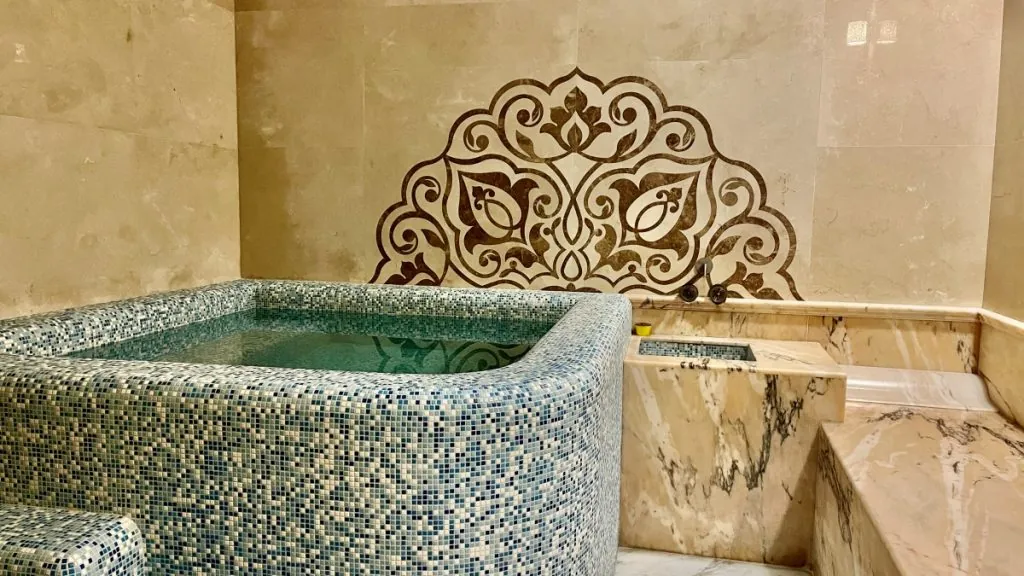
Abanotubani - the bathing district
Abanotubani is the bathing district of Tblisi. This is a very old neighbourhood, which you will find in the centre of the eastern side of the Mtkvari River. Here you can see, among other things, old historical dome-shaped bathhouses, which remind you that people have been bathing here for a long, long time.
An important reason for bathing is of course to get clean. Some people also believe that bathing has positive effects on health, such as softening muscles and joints, improving blood circulation or having a beneficial effect on various skin conditions.
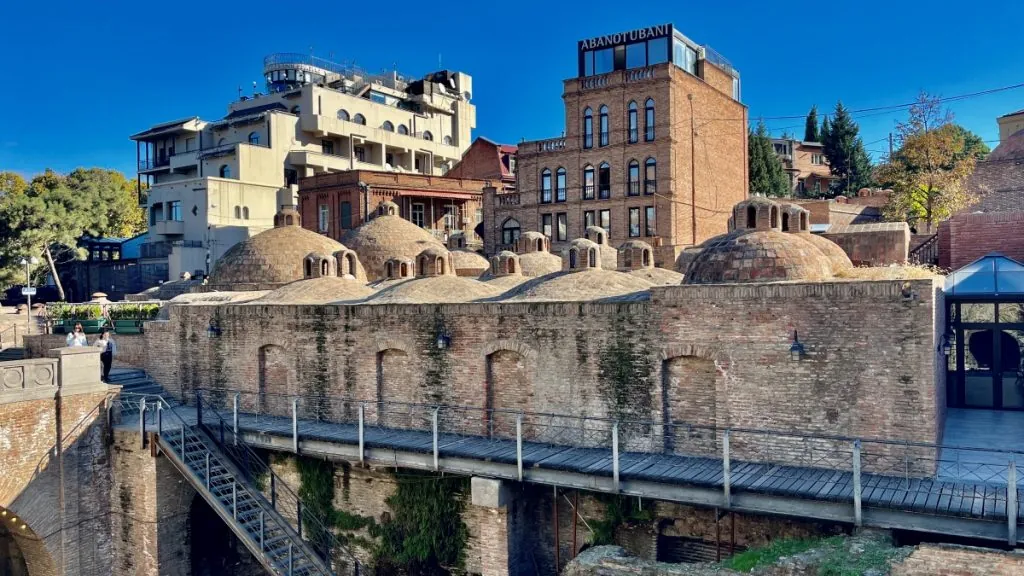
The surroundings of the bathhouses are also quite lovely, with beautiful houses with ornate balconies, more or less hanging over the cliff edges. The setting is peaceful, at least on a weekday morning in October, with people strolling at a leisurely pace and dogs resting in the sunlight.
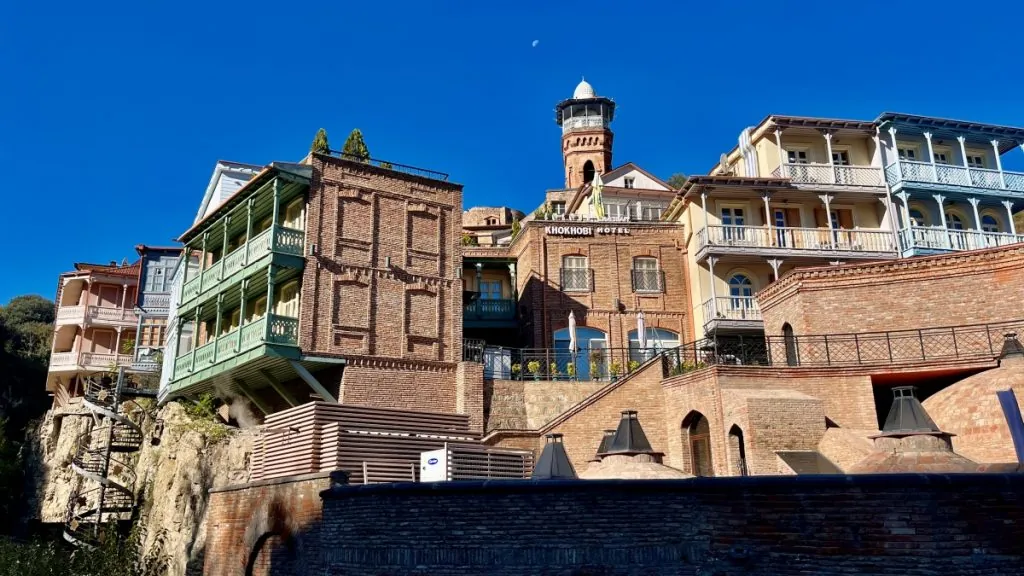
On the small bridges, people have put up padlocks, presumably to lock in their love, as in so many other cities in the world.
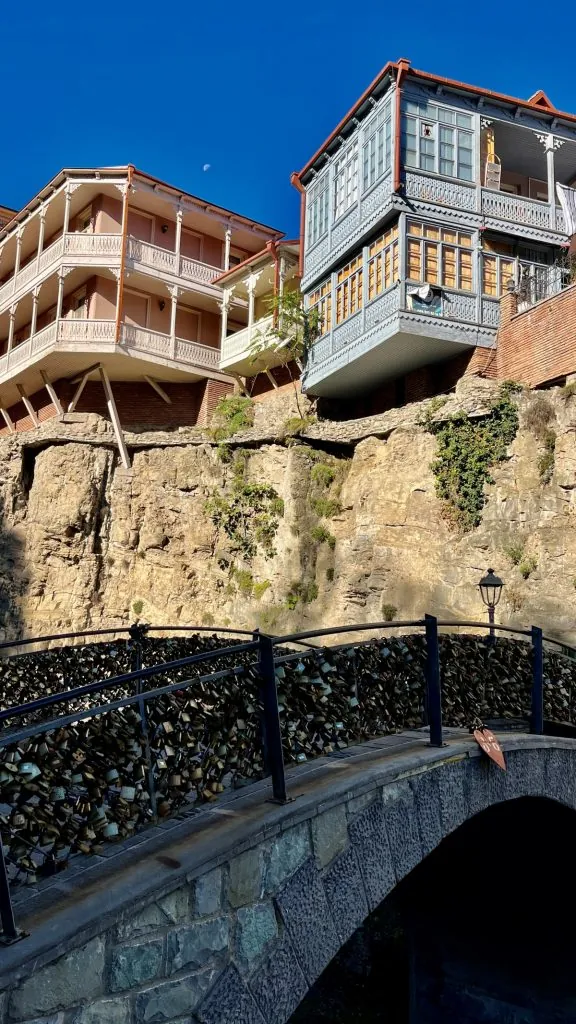
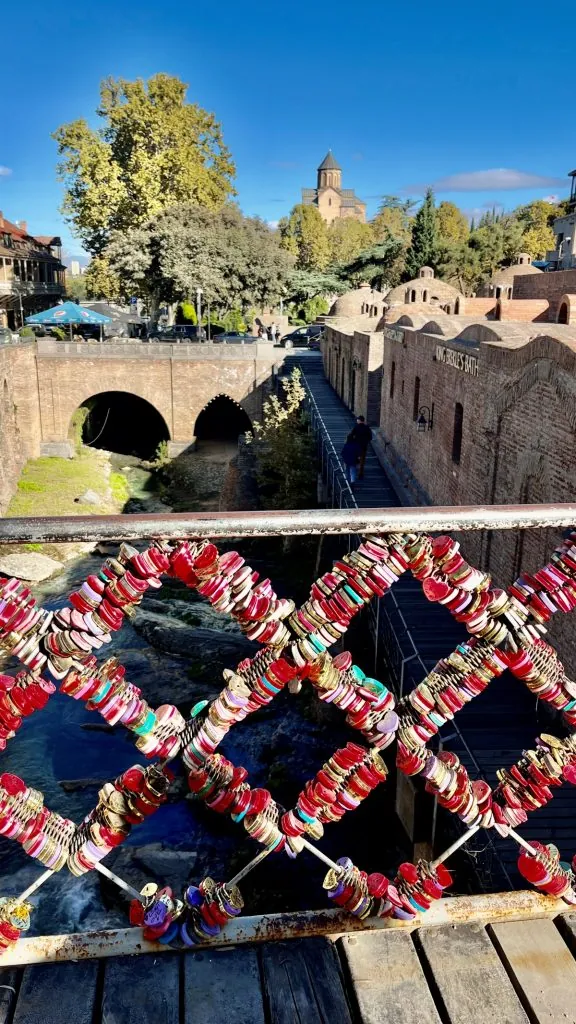
You can also find small bars and restaurants in the area.
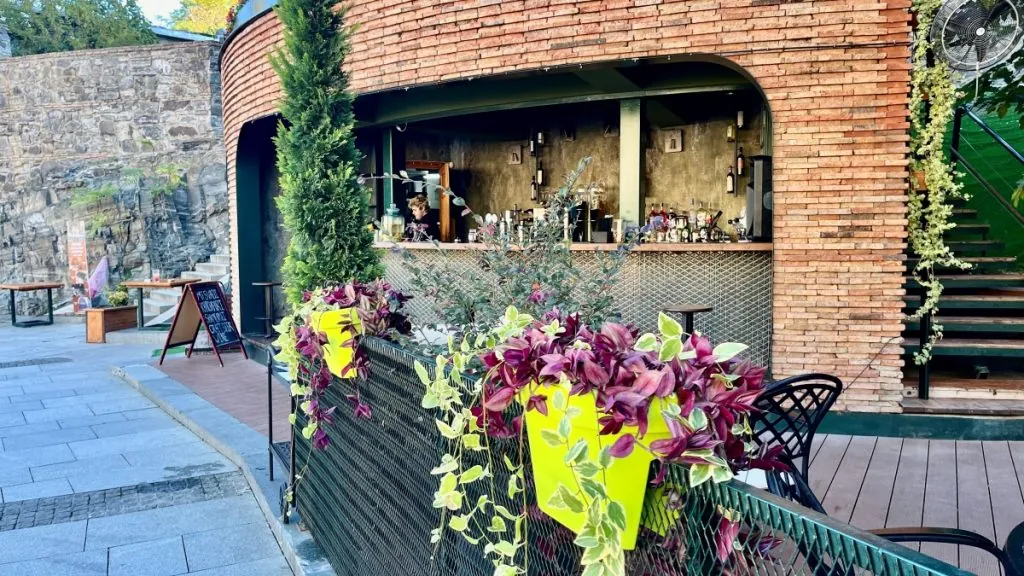
Various sulphur baths in Tbilisi
If you want to try sulphur baths in Tbilisi, the Abanotubani bathing district is the place to go. Here are several different bathhouses, next to each other. If it's high season, with many tourists, it can be a good idea to book in advance. When we were here, at the end of October, it was possible to find available times by peeking into the receptions and asking.
Public or private bath?
Public or private bath? This is the first question you should ask yourself. Public baths are much cheaper, but also much simpler. They are gender-segregated bathing centres where you bathe or wash, often naked, with other women or men. In the place where we asked, the women's side only had showers and the men's side only had showers and saunas, but no pools.
Private bathing instead means booking your own room, for one or two people, or for a smaller family or group. This bathing experience costs a little more, but includes the use of beautiful private bathrooms. As the rooms are private, you can choose whether you want to bathe naked or wear swimwear. You can usually also book different treatments, such as a bathing ritual or massage.
Various bathing centres
There are therefore several different bathing establishments, located next to each other in the bathing district. All of them offer private bathrooms, and what can vary is, among other things, how traditional or modern they are, whether or not they include a sauna, and the price.
- Bohema Sulphur Bath
- Chreli Abano
- Gulo's Thermal Spa
- King Erekle's Sulphur Bath
- Royal Bath-house
- Sulphur Bathhouse No 5 (public bath)
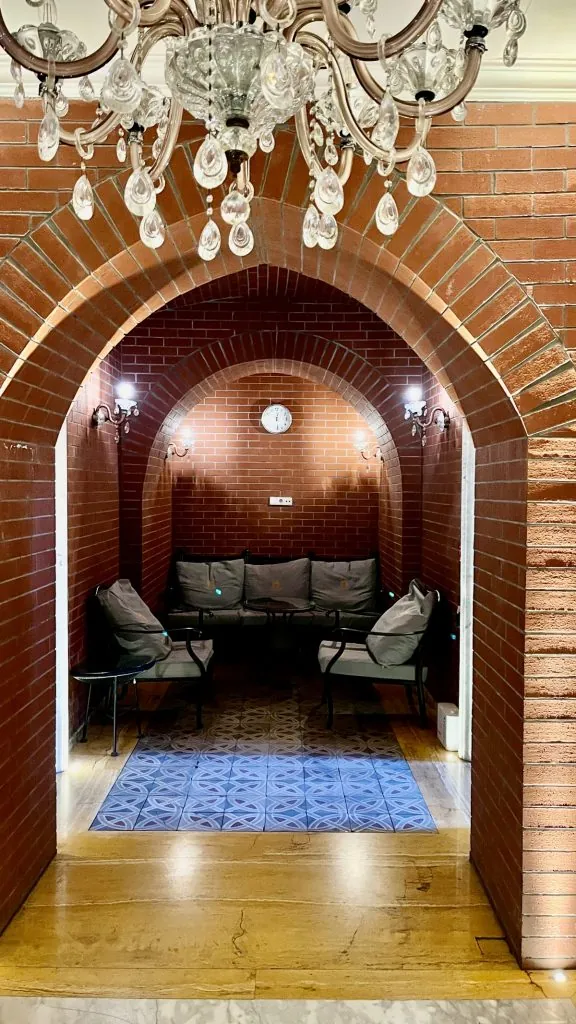
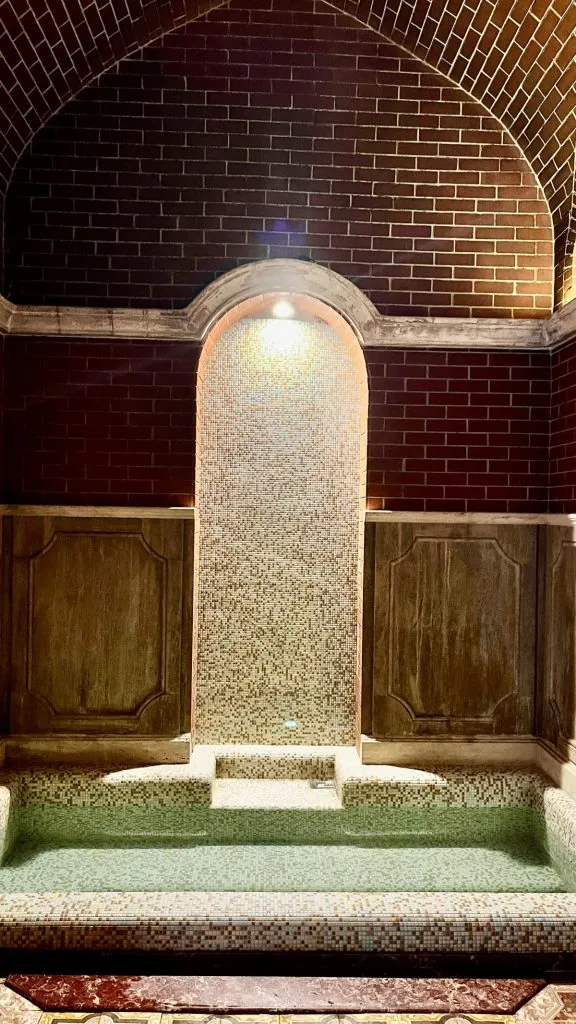
Bathing in sulphur baths in Tbilisi - our experience
We went round to some of the bathhouses in the area, asked about prices and asked to see one of the private rooms. Our choice finally fell on Chreli Abano, which is the bathhouse with the most beautiful façade. This blue mosaic facade is very reminiscent of the architecture of Uzbekistan, and stands out here in Tbilisi.
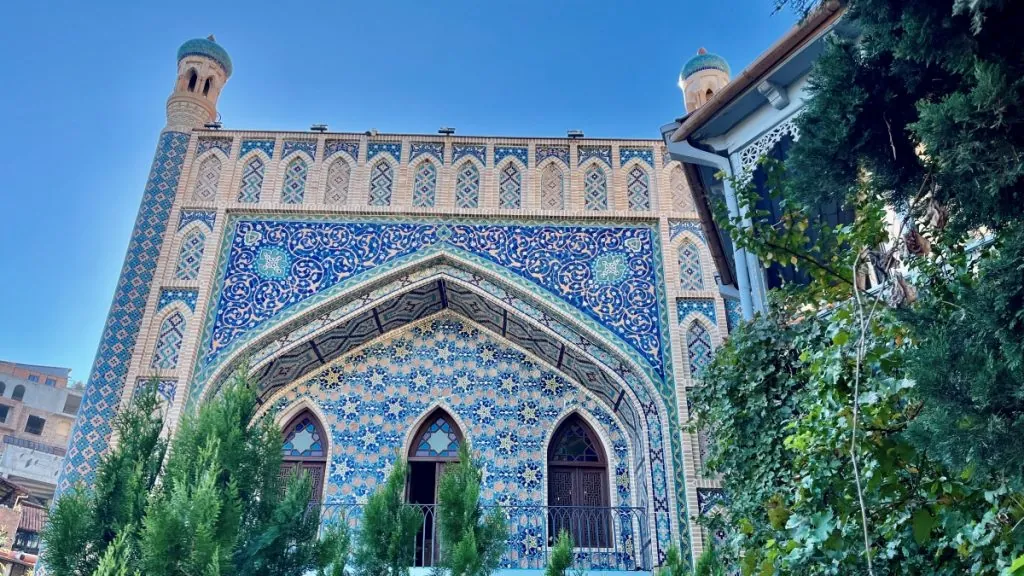
We had to pay 200 lari (about 800 kronor) for the room and a little extra for the loan of towels and slippers, which you can also bring yourself. If you book a treatment at this bathhouse, you pay the therapist in cash directly in the room, so you also need to bring some cash with you.
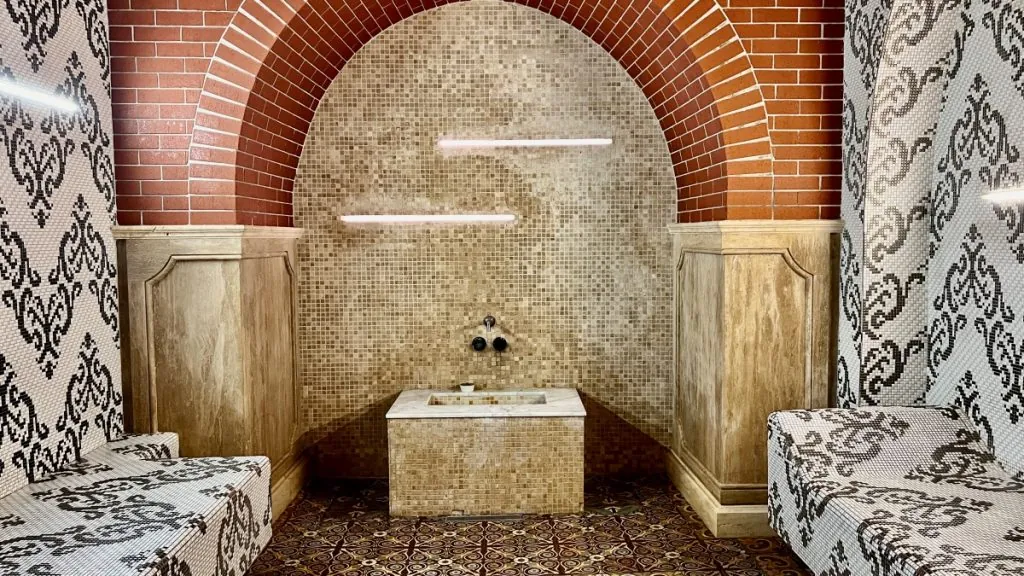
Just to be sure, we asked if you bathe naked or with swimwear, and the answer is that you choose this entirely yourself. The room is private and if you book a treatment, a male therapist will come to male guests and a female therapist to female guests. If you choose to wear swimwear, as a woman it is best to opt for a bikini, as the masseuse may ask you to remove your top when she scrubs your body.
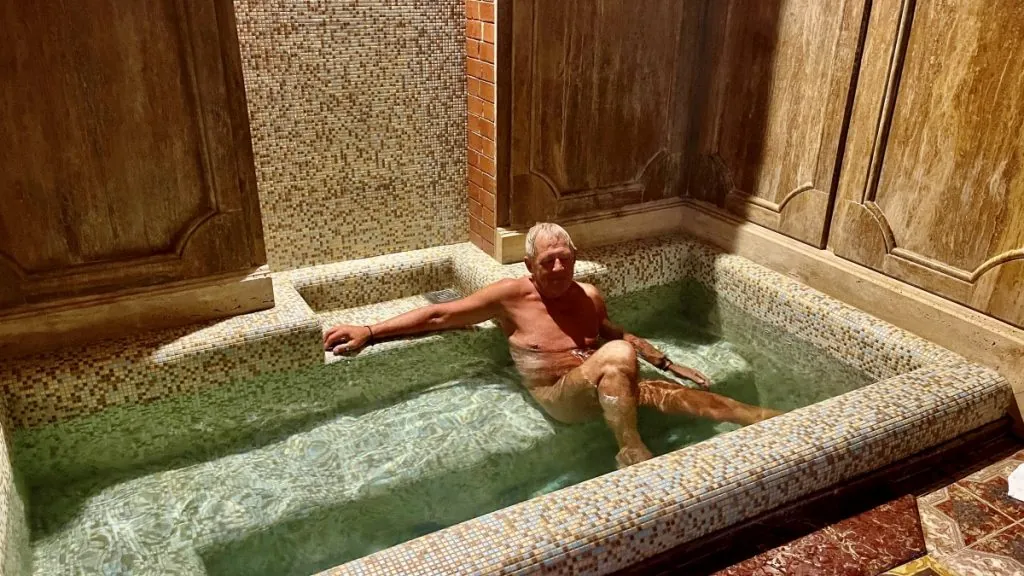
We chose to swim without clothes and booked a traditional so-called kisi scrub. This is similar to the treatment you might get at a Turkish hammam, and involves body scrubbing, washing with a foaming soap and rinsing with hot water from a bucket.
The washing took maybe ten minutes per person, at most, and after that you felt really clean. The rest of our booked hour was spent in the bath or shower. The water is really hot, so it can be good to shower a little cooler from time to time.
All in all, this was a very pleasant experience that we would not have wanted to be without. Afterwards we felt not only clean, but also warm from the inside out, and ready for more experiences in Tbilisi.
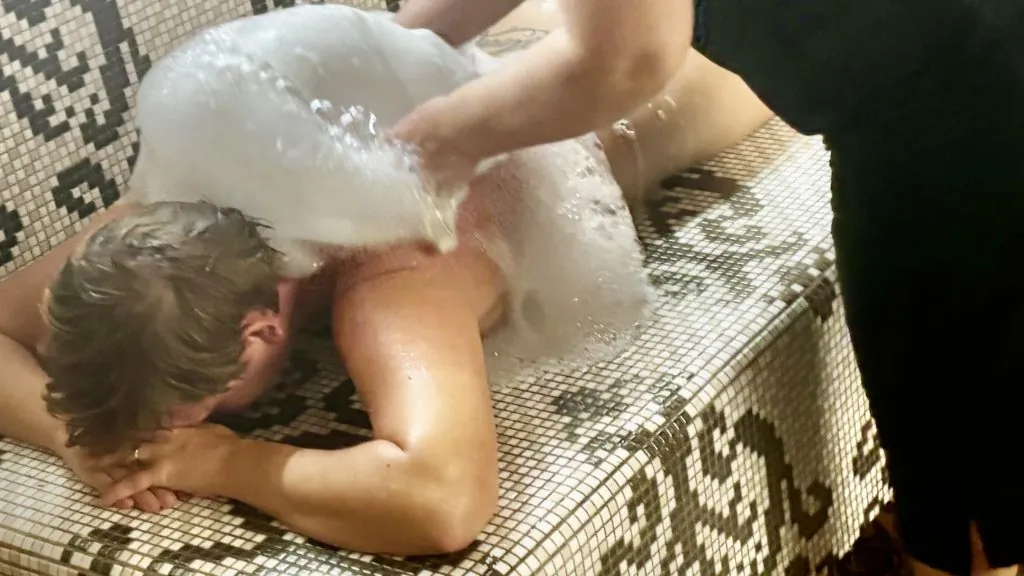
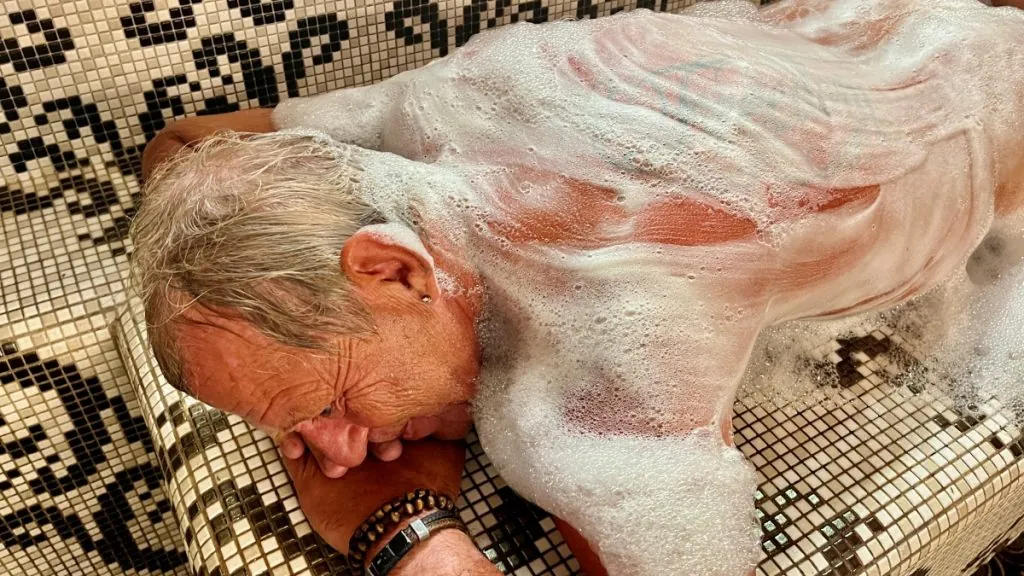
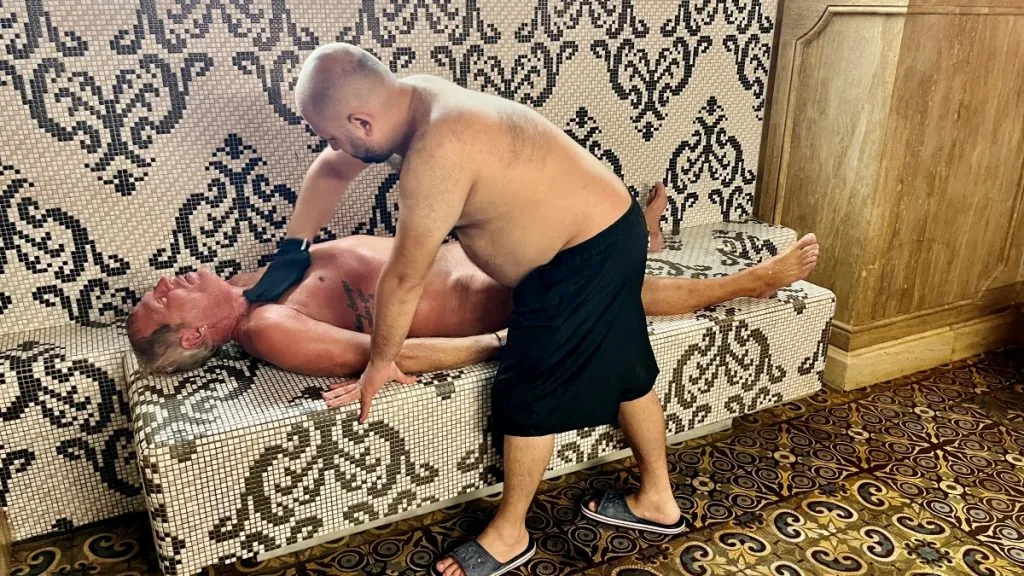
More to see and do in the neighbourhood
Sulphur bathing is perhaps one of the most special things to do in the Georgian capital, but there are of course many other things to do What to see and do in Tbilisi. The city offers, among other things, cosy alleys, nice restaurants with Georgian food, interesting historical sights and several cable cars. In addition, it is interesting to make an excursion to the historical and the holy city of Mtscheta, which is located nearby.

Facts about sulphur baths in Tbilisi
- Location: Most sulphur baths in Tbilisi are located in Abanotubani, the central bathing district. There are also occasional bathhouses in other parts of the city.
- Price: Public baths can cost around 7 lari/person (around €30), while private baths often cost around 150-200 lari/room (around €600-800). There are both cheaper and more expensive options. Bath ritual (kisi scrub) in our case cost 20 lari/person (about 80 kroner) (2024)
- Booking: If you want to be sure of getting a room when you want it, it's a good idea to book in advance, especially during the high season. You can book via the pool's website or via their Facebook page.
- Treatments: You can book traditional kisi scrub (bathing ritual) and various types of massage.
- To take away: Possibly swimwear (bikini most suitable for women), if you do not want to swim naked. Towel and slippers, if you do not want to rent them. Camera/mobile phone if you want to take photos in private bathrooms (not allowed in public baths). A watch/mobile phone to keep track of time. Possibly a water bottle, in case you get thirsty in the hot bath.
- To think about: Remove jewellery before bathing, especially silver jewellery, as it can be damaged by the water.


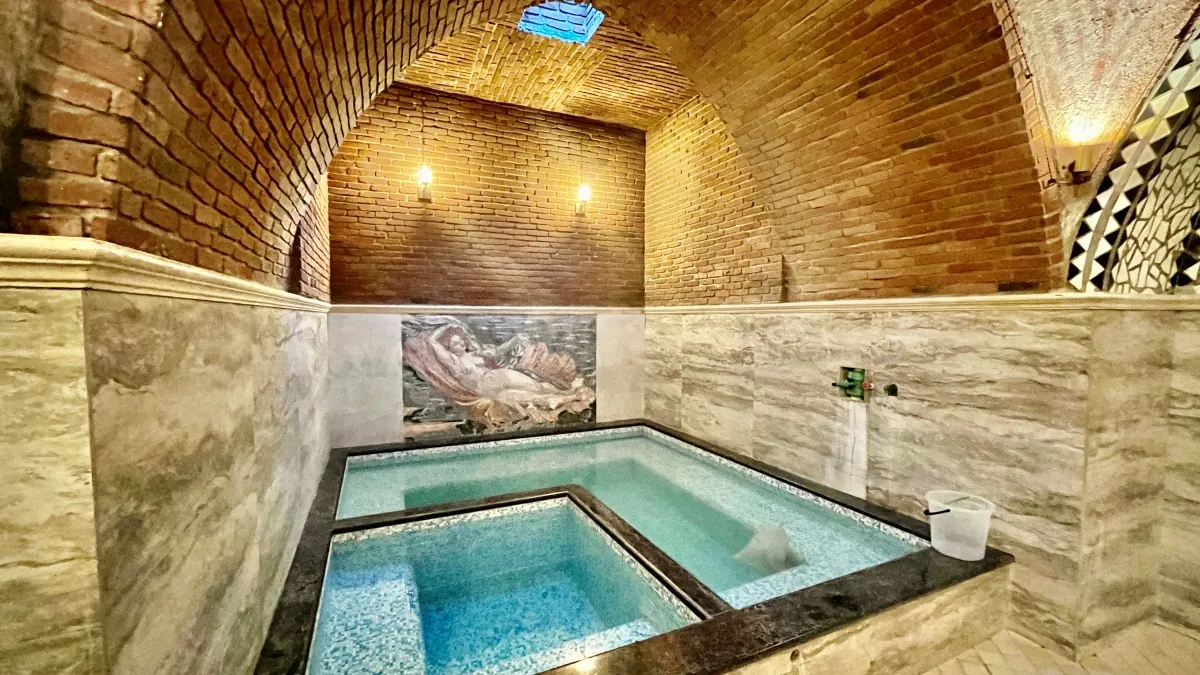






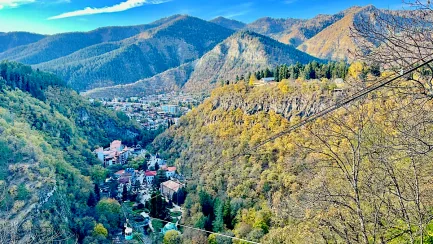
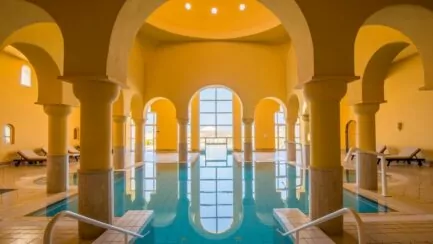
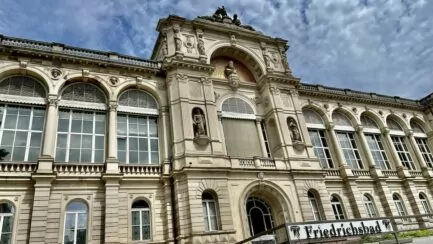
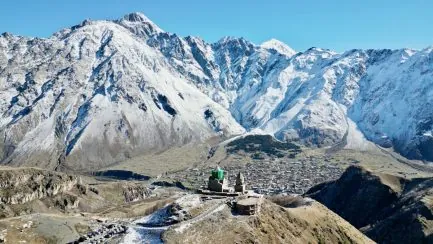
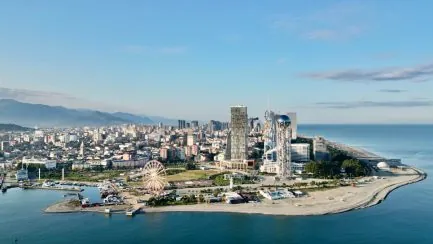
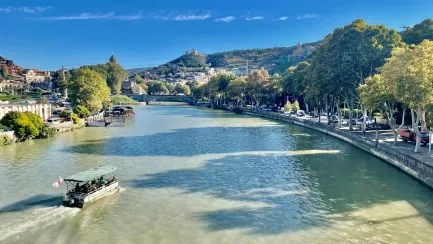



Louise Åhrstadiu says:
Very interesting to read about the sulphur baths in Tbilisi. I usually visit bathhouses in different countries when I am travelling..They have been of different quality but you have to expect that.
27 October 2024 - 16:34
Helena says:
I'm glad you enjoyed the report! It's nice to visit bathhouses in different countries, especially when there is tradition and culture around bathing.
29 October 2024 - 4:38